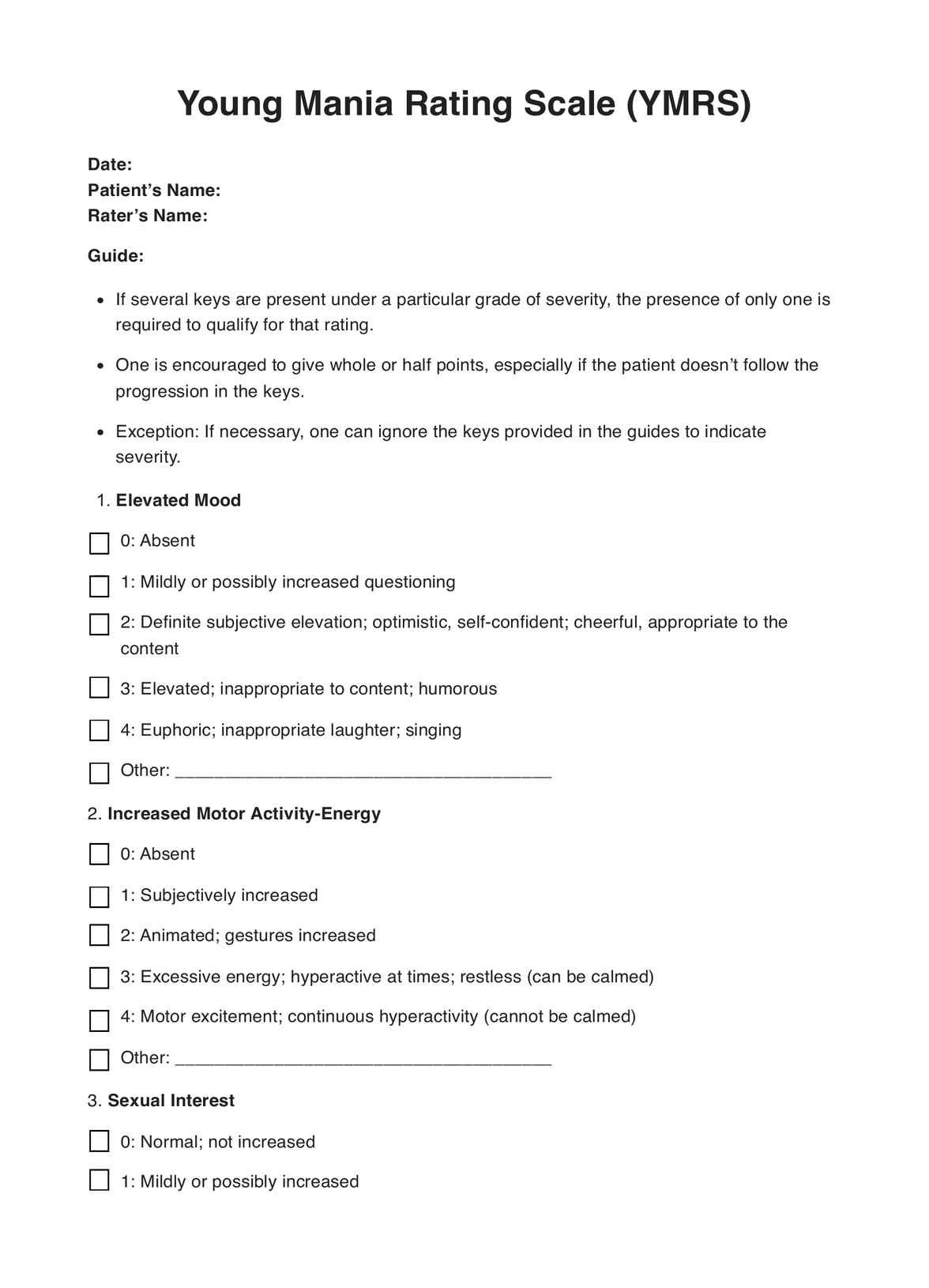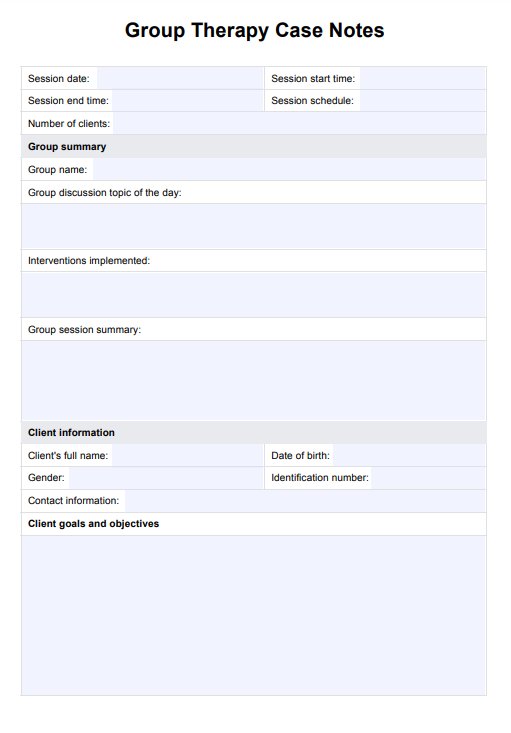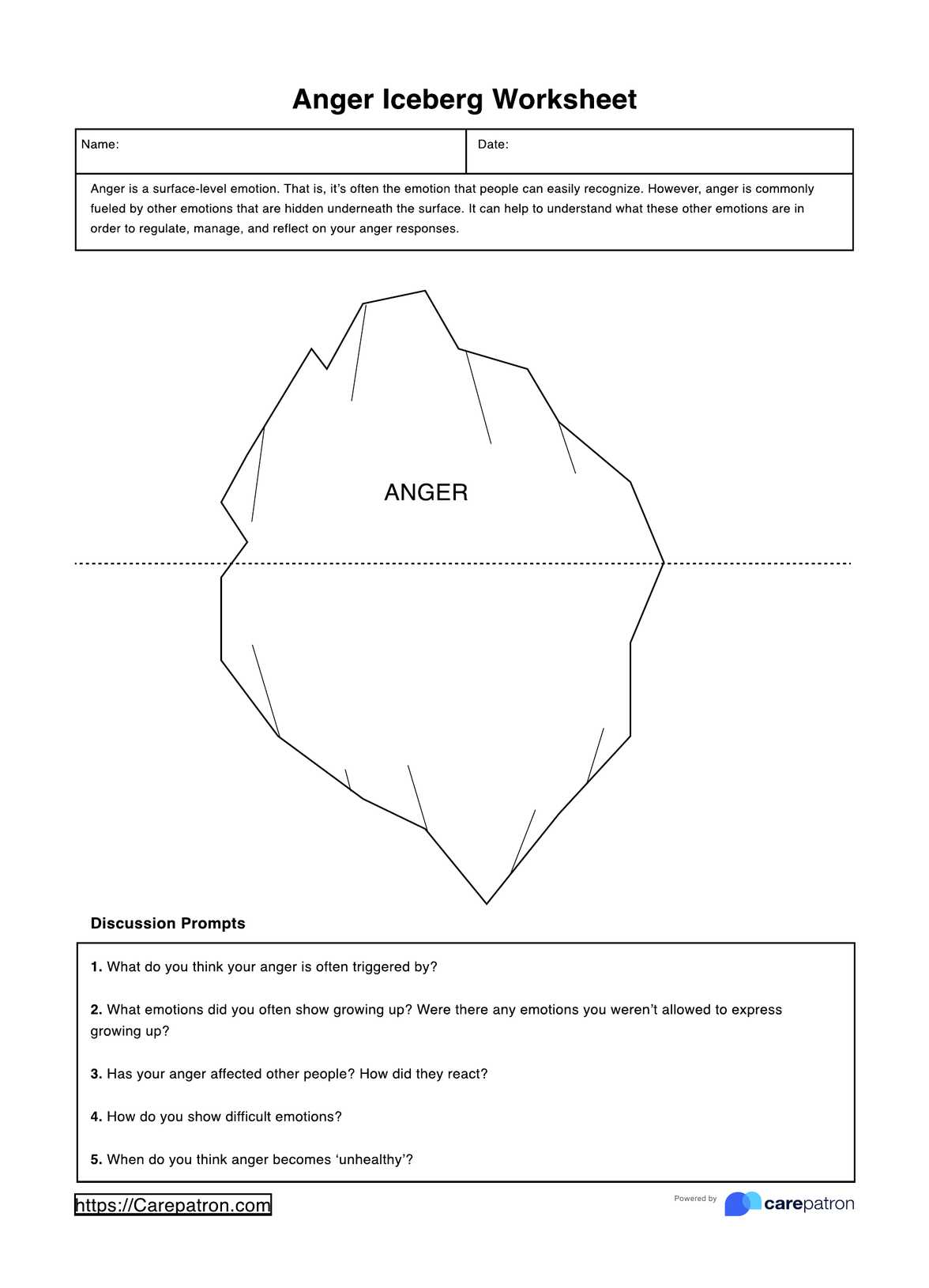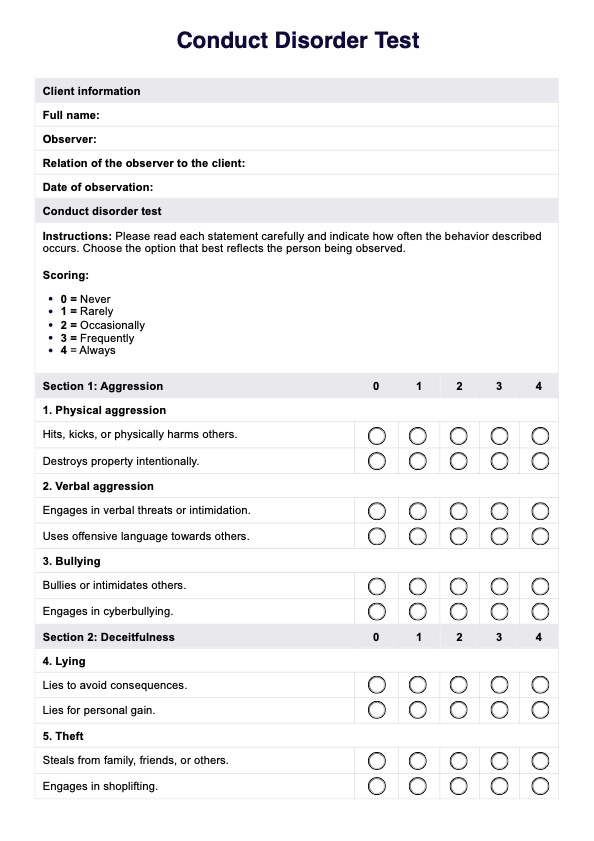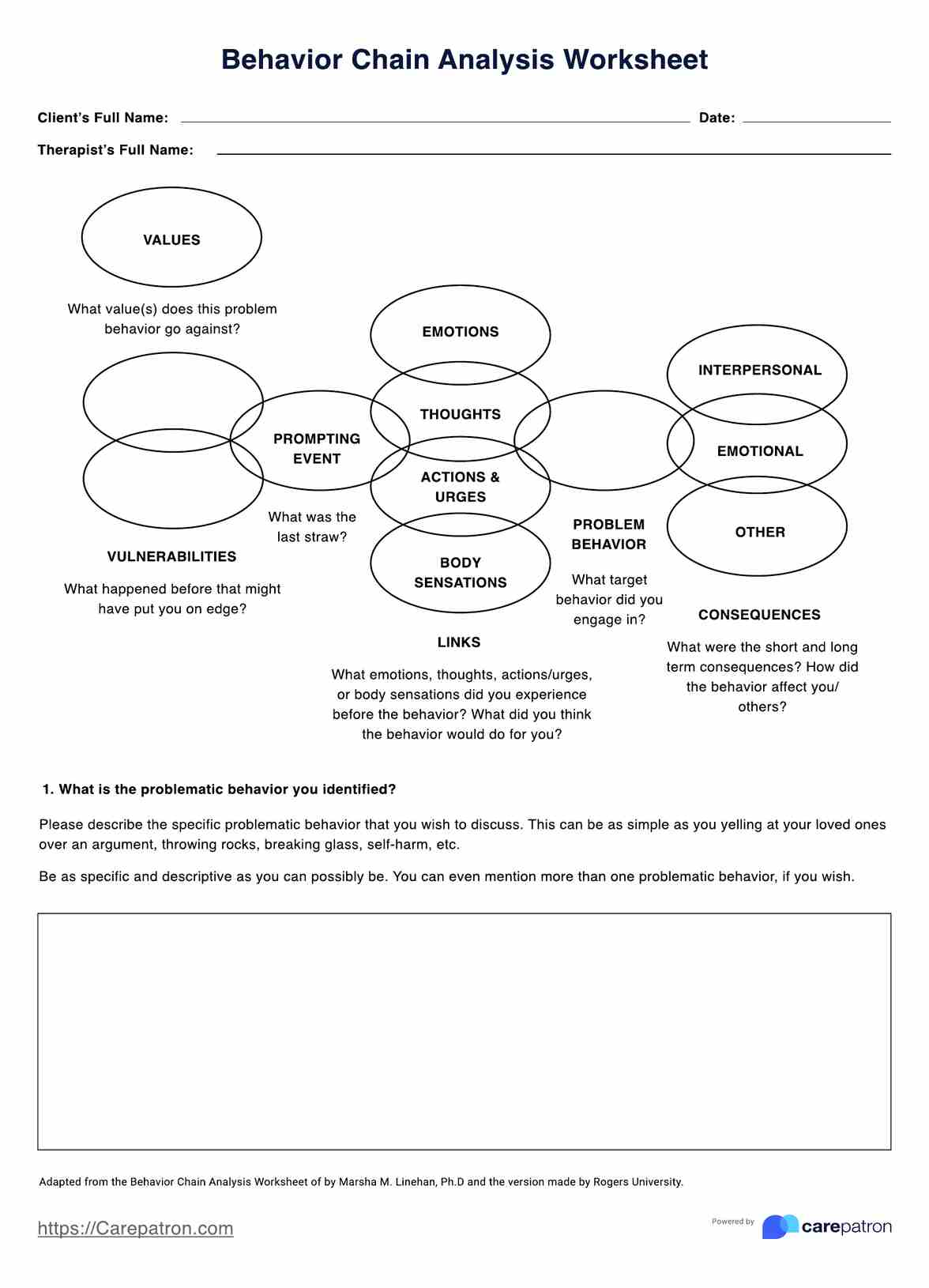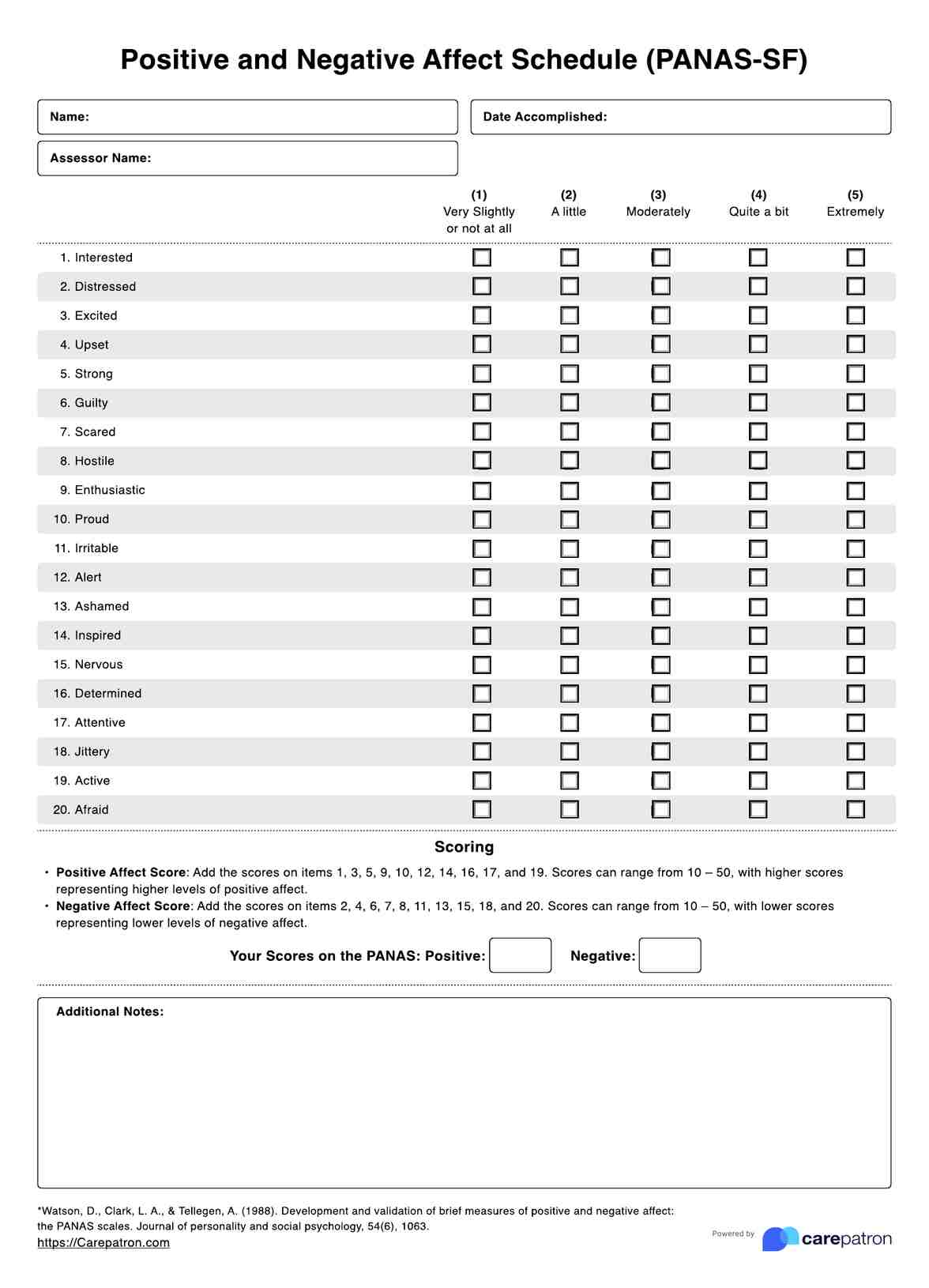Mental Health Diagnosis Cheat Sheet
Discover our Mental Health Diagnosis Cheat Sheet for accurate ICD-10 coding, enhancing care and billing in mental health practices.


How is mental health diagnosed?
Mental health diagnosis involves thoroughly evaluating a person's psychological, emotional, or behavioral symptoms. Behavioral health professionals use a combination of interviews, psychological assessments, and medical evaluations to diagnose mental health conditions.
This process may include discussing symptoms, personal and family medical histories, and how the individual's behavior has changed over time.
Mental Health Diagnosis Cheat Sheet Template
Mental Health Diagnosis Cheat Sheet Example
What are ICD-10 codes?
The International Classification of Diseases, Tenth Revision (ICD-10) is a worldwide coding system that classifies diseases and various signs, symptoms, abnormal findings, and external causes of injury or disease. These codes standardize the diagnosis across different healthcare providers and settings, enabling clear communication and facilitating research and epidemiological studies.
Purpose
ICD-10 codes are essential for the documentation and billing of healthcare services. They help accurately describe a patient's diagnosis and ensure that healthcare providers are reimbursed for their services. Additionally, they assist in epidemiological research, allowing for the monitoring of disease prevalence and the effectiveness of treatment modalities.
How to decipher the ICD-10 code structure
ICD-10 codes are alphanumeric, with the first letter indicating the chapter of diseases they belong to. The subsequent characters specify the condition more precisely. For mental health, codes typically begin with an "F," indicating they fall under Chapter 5, which covers mental, behavioral, and neurodevelopmental disorders.
How is ICD used to diagnose mental health disorders?
ICD codes offer a standardized language for diagnosing and categorizing mental health conditions. Behavioral health professionals use these codes to document diagnoses accurately. This standardization facilitates communication between healthcare providers and supports consistent treatment approaches.
Most frequently used mental health ICD-10 codes
Within the realm of mental health care, certain conditions are diagnosed more frequently than others. The following list highlights the ICD-10 codes corresponding to these prevalent mental health disorders.
This selection provides a snapshot of patients' broad spectrum of challenges, serving as a key reference for professionals in their diagnostic and treatment planning processes.
- F32.1: Major depressive disorder, single episode, moderate
- F41.1: Generalized anxiety disorder
- F41.0: Panic disorder [episodic paroxysmal anxiety] without agoraphobia
- F43.23: Adjustment disorder with mixed anxiety and depressed mood
- F90.9: Hyperkinetic disorder (but is also known as attention-deficit hyperactivity disorder)
How to accurately assign ICD-10 codes during diagnosis?
Accurately assigning ICD-10 codes during the diagnosis of mental health conditions is a crucial step in ensuring patients receive appropriate care and that healthcare providers are correctly reimbursed for their services. This process requires precision and a deep understanding of the ICD-10 coding system. Here’s an expanded view of how professionals can achieve accuracy in this task:
Conduct a thorough assessment
A comprehensive assessment is the cornerstone of accurate diagnosis and coding. This involves a detailed evaluation of the patient's psychological, physical, and social circumstances. Professionals should gather information through clinical interviews, psychological testing, behavior observation, and, if necessary, physical examinations and laboratory tests. Understanding the full scope of the patient's condition enables the clinician to identify the most accurate ICD-10 code that reflects the symptoms' severity, frequency, and nature.
Use the most recent ICD guidelines as references
The ICD coding system is periodically updated to reflect advancements in medical knowledge and changes in healthcare practices. Therefore, professionals must stay informed about the latest guidelines and coding updates.
Using outdated information can lead to incorrect coding, affecting patient care and billing. Regular training sessions, subscriptions to updates from authoritative sources, and consultation with the latest edition of the ICD-10 manual are recommended practices for staying current.
Despite the publication of ICD-11, the transition to this latest version varies by country, with some adopting it more quickly than others. In the United States, for example, it is anticipated to take several years to fully implement the transition to ICD-11 fully, making monitoring both local and international updates on ICD adoption important.
Choose the most specific code available
ICD-10 codes are designed to convey a lot of information about the diagnosis in a standardized format. For mental health conditions, this means selecting a code that identifies the disorder and provides additional details about its manifestation and severity.
For example, instead of using a broad code for depressive disorder, a clinician should specify whether it's a major depressive disorder, single episode, moderate, severe with psychotic features, or another specific type. Choosing the most specific code ensures the diagnosis is accurately represented, facilitating appropriate treatment planning and billing.
Documentation and collaboration
Accurate coding also relies on meticulous documentation of the assessment findings, diagnosis rationale, and decision-making process. This documentation should support the chosen ICD-10 code and be available for review if needed. Additionally, collaboration with coding specialists or colleagues can help clarify uncertainties and ensure the most appropriate codes are used.
Utilize coding resources and tools
Various resources and tools are available to assist healthcare professionals in selecting the correct ICD-10 codes. These include coding manuals, online databases, software programs, and mobile apps designed to simplify searching for and selecting appropriate codes. Leveraging these resources can reduce errors and enhance the accuracy of the coding process.
Resources for ICD-10 codes for mental health
Accurate diagnosis and documentation are vital for mental health professionals, necessitating current ICD-10 codes. The 20 ICD Codes for Mental Health in 2023 on our blog is an invaluable resource. It details pertinent ICD-10 codes for various mental health conditions, ensuring professionals' diagnoses are precise and up-to-date, crucial for effective billing and treatment planning. The guide is accessible here.
In addition, our comprehensive overview of mental and behavioral disorders offers deep insights into each condition. Beyond listing ICD-10 codes, it explores symptoms, treatment options, and care strategies, enriching professionals' understanding and diagnosis accuracy. This resource is instrumental for those looking to broaden their knowledge of mental health disorders.
Commonly asked questions
Yes! There have been significant updates to ICD-10 codes for mental health in 2023, including adding new billable healthcare codes for areas such as social determinants of health, dementia, maternal care, and pregnancy. With the recent implementation of these updates on April 1, 2024, in the United States, the modifications highlight the continued reliance on ICD-10 in many countries despite the availability of ICD-11.
Understanding the structure of ICD-10 codes involves categorizing them into chapters covering different diseases and health conditions. For mental health specifically, you can find relevant codes under Chapter 5, which deals with mental, behavioral, and neurodevelopmental disorders. Each code is structured to provide a high level of specificity about the condition, its severity, and other important clinical details.
When using ICD-10 codes, it's important to ensure code specificity to capture the full acuity of the patient and the care provided, especially as the healthcare system shifts towards value-based care. Always rely on the latest updates and guidelines to ensure accurate documentation and coding. Additionally, leveraging resources and tools that update you on the annual changes can be very helpful.


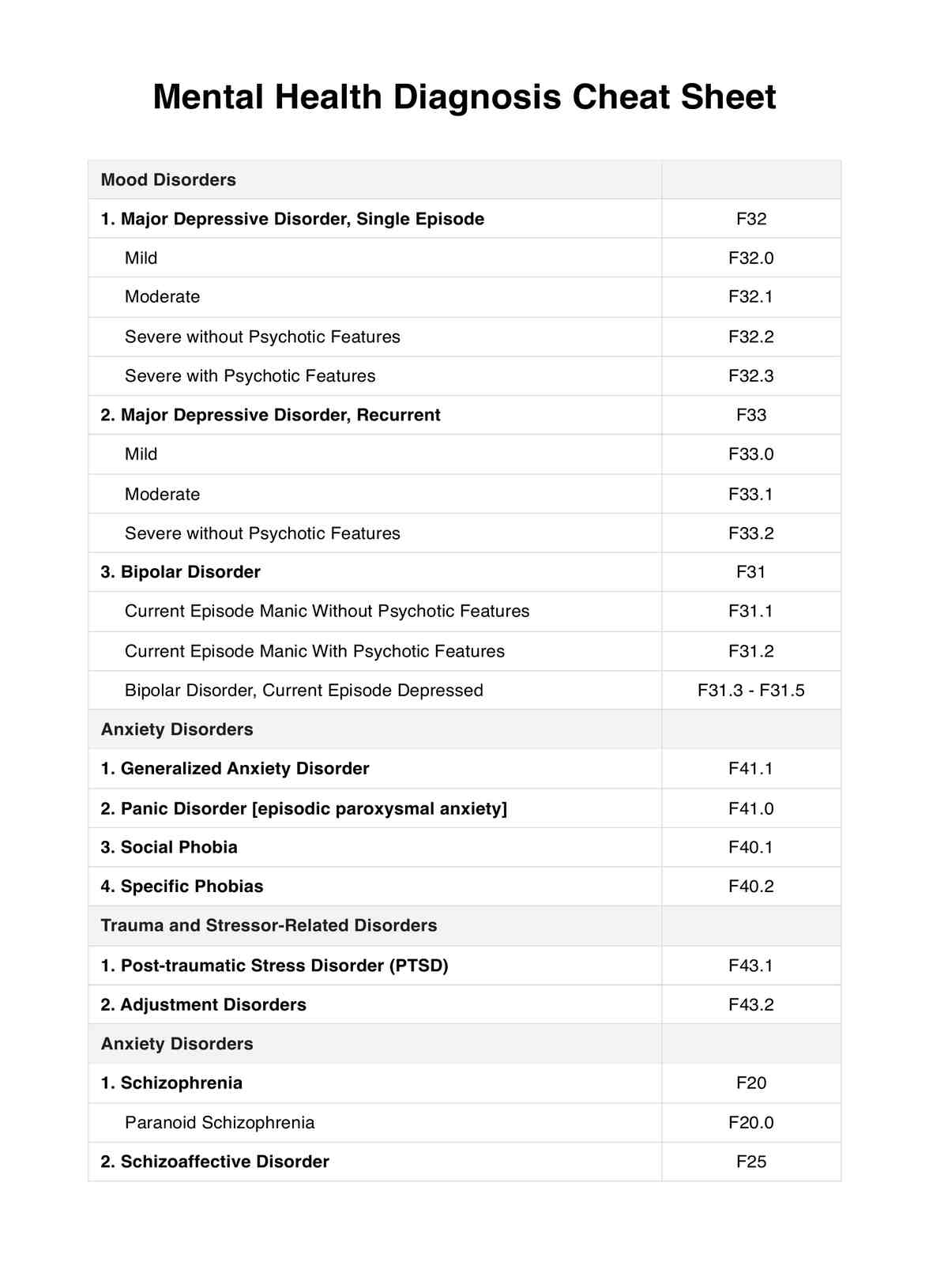
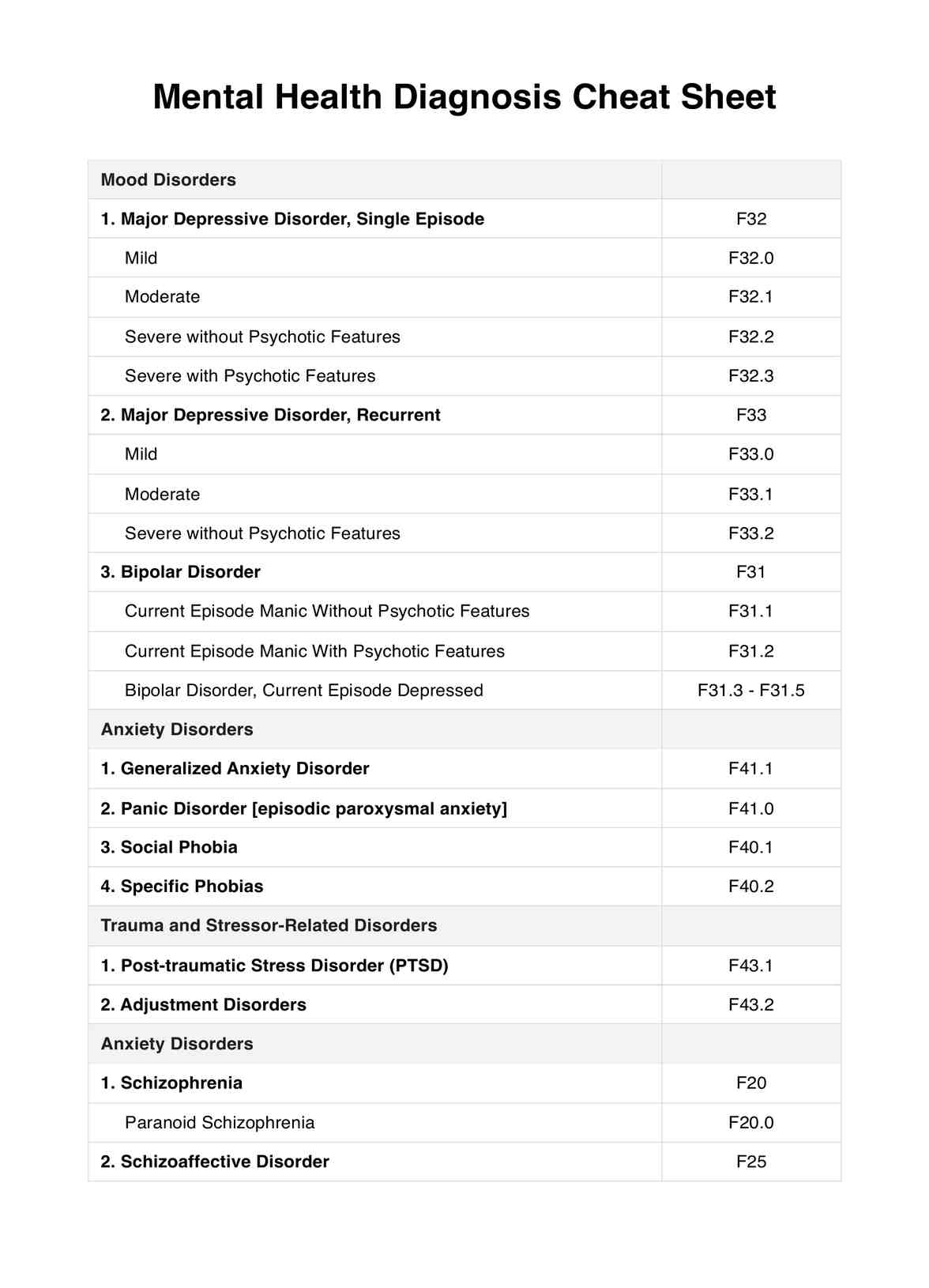

















-template.jpg)



















































































